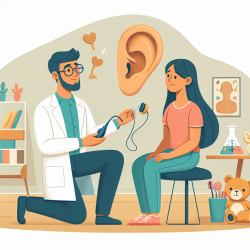Language impairment (LI) in children can have long-lasting effects that extend well into adulthood, impacting their social confidence and overall well-being. A recent study titled Social Confidence in Early Adulthood Among Young People With and Without a History of Language Impairment offers valuable insights into these effects and suggests actionable strategies for practitioners to improve outcomes for these individuals.
The study reveals that young adults with a history of LI are likely to have lower self-esteem, higher shyness, and lower social self-efficacy (SSE) compared to their peers. These findings underscore the importance of early and continuous intervention to mitigate the long-term social disadvantages associated with LI.
Key Findings
- Young adults with LI scored lower on self-esteem and higher on shyness compared to their peers.
- Language ability in adolescence predicts shyness in young adulthood, which negatively impacts self-esteem.
- Social self-efficacy (SSE) is significantly lower in young adults with LI.
Actionable Strategies for Practitioners
Based on these findings, here are several strategies practitioners can implement to improve social confidence in children with LI:
1. Early Intervention
Intervene early to address language deficits. Early intervention can help mitigate the long-term social disadvantages associated with LI. Use evidence-based language therapy techniques to improve both expressive and receptive language skills.
2. Focus on Social Skills Training
Incorporate social skills training into your therapy sessions. Role-playing, social stories, and group activities can help children with LI develop better social interactions and reduce shyness.
3. Enhance Social Self-Efficacy
Focus on enhancing SSE by setting achievable social goals, modeling successful social interactions, and providing positive reinforcement. Encourage children to reflect on their successful social interactions to build confidence.
4. Family and School Involvement
Engage families and schools in the intervention process. Educate them about the importance of social skills and provide them with strategies to support the child’s social development at home and in school.
5. Continuous Monitoring and Support
Monitor the child’s progress regularly and adjust interventions as needed. Provide continuous support to ensure that gains in language and social skills are maintained over time.
Encouraging Further Research
While this study provides valuable insights, it also highlights the need for further research. Practitioners are encouraged to stay updated with the latest research and incorporate new findings into their practice. Collaborative research efforts can also help develop more effective interventions.
To read the original research paper, please follow this link: Social Confidence in Early Adulthood Among Young People With and Without a History of Language Impairment.










